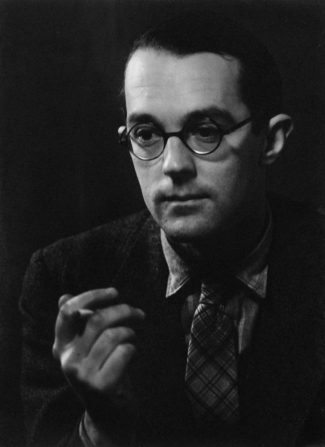Basil Wright (Basil Wright)

After leaving Sherborne School, a well known independent school in the market town of Sherborne in Dorset, Basil Wright was the first recruit to join John Grierson at the Empire Marketing Board’s film unit in 1930, shortly after he graduated from Cambridge University. Wright’s 1934 film Song of Ceylon is his most celebrated work. Shot on location in Ceylon (now Sri Lanka) the film was completed with the composer Walter Leigh at the GPO Film Unit in London. At the GPO, Wright acted as producer and wrote the script for Night Mail (1936) for which he received a joint directorial credit with Harry Watt. Wright had introduced his friend W. H. Auden to the film unit and the poet’s verse was included in the film. Basil Wright left the GPO to form his own production company, The Realist Film Unit (RFU). There he directed Children at School with money from the Gas Industry and The Face of Scotland for The Films of Scotland Committee. During World War II, Basil Wright worked only as a producer, first at John Grierson’s Film Centre before joining The Crown Film Unit between 1945 and 1946 as producer-in-charge. Among the best known films he produced for Crown are Humphrey Jennings’ A Diary for Timothy (1946) and A Defeated People (1946). Returning to direction in the early 1950s, his films included Waters of Time (1951) made for the Festival of Britain, World Without End (1953) directed with Paul Rotha for UNESCO and Greece: The Immortal Land (1958) in collaboration with his friend the artist Michael Ayrton.
Writing throughout the 30s and 40s, Basil Wright had contributed to the theoretical development of documentary in the movement’s journals Cinema Quarterly, World Film News and Documentary Newsletter. He was the film critic for The Spectator after Graham Greene left. Wright was a regular contributor to the British Film Institute’s Sight and Sound during the 1940s and ’50s. He published a small book: The Uses of Film (1948) and his personal (extensive) history of cinema The Long View (1974). He taught at the University of Southern California (1962 and 1968), The National Film and Television School in London (1971–73) and Temple University in Philadelphia (1977–78). He was Governor of the British Film Institute, a fellow of the British Film Academy and President of the International Association of Documentary Filmmakers. In his films Wright combined an ability to look closely and carefully at a subject with a poetic and often experimental approach to editing and sound. In Britain he is commemorated with a film prize awarded biennially by the Royal Anthropological Institute.
Born
- June, 12, 1907
- United Kingdom
- Sutton, London, England
Died
- October, 14, 1987
- United Kingdom
- Frieth, Buckinghamshire, England

